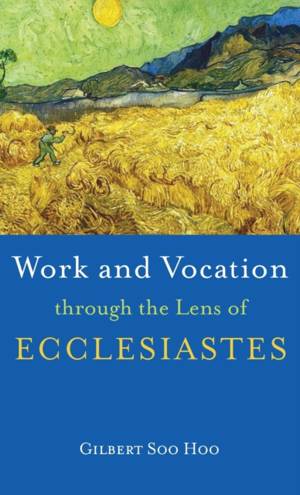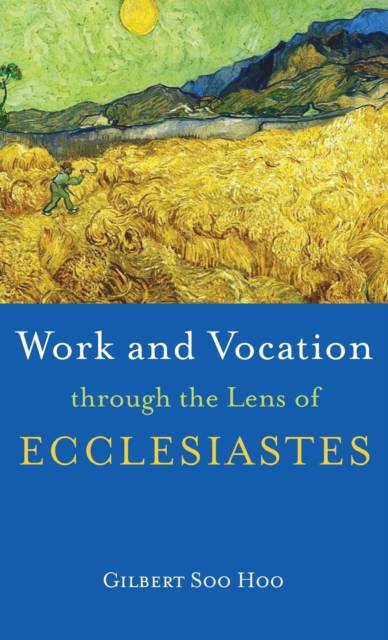
- Afhalen na 1 uur in een winkel met voorraad
- Gratis thuislevering in België vanaf € 30
- Ruim aanbod met 7 miljoen producten
- Afhalen na 1 uur in een winkel met voorraad
- Gratis thuislevering in België vanaf € 30
- Ruim aanbod met 7 miljoen producten
€ 44,45
+ 88 punten
Uitvoering
Omschrijving
"I want my work to have significance" is an often-expressed declaration. But that desire faces a shocking challenge from possibly the wisest man who ever lived, Qohelet, through his writings in Ecclesiastes. Repeatedly, he pens the word "meaningless/absurd" to encapsulate his conclusions about work and life. We cannot simply dismiss his viewpoint as that of a madman because his words are canonized in Scripture. However, a second writer, the frame narrator, emerges at the end of Ecclesiastes to complement Qohelet without totally agreeing and with a greater urgency for our duty to God as our vocation. Both writers see the complexities and incongruities that typify our labor and life. Yet, through these challenges we can still find significance when we honor our God.
Specificaties
Betrokkenen
- Auteur(s):
- Uitgeverij:
Inhoud
- Aantal bladzijden:
- 126
- Taal:
- Engels
Eigenschappen
- Productcode (EAN):
- 9781666723205
- Verschijningsdatum:
- 8/10/2021
- Uitvoering:
- Hardcover
- Formaat:
- Genaaid
- Afmetingen:
- 140 mm x 216 mm
- Gewicht:
- 294 g

Alleen bij Standaard Boekhandel
+ 88 punten op je klantenkaart van Standaard Boekhandel
Beoordelingen
We publiceren alleen reviews die voldoen aan de voorwaarden voor reviews. Bekijk onze voorwaarden voor reviews.








